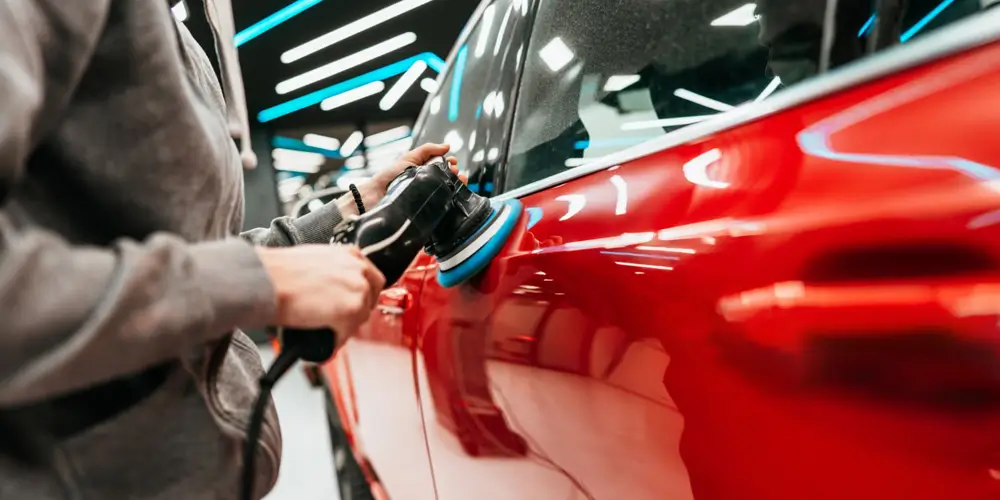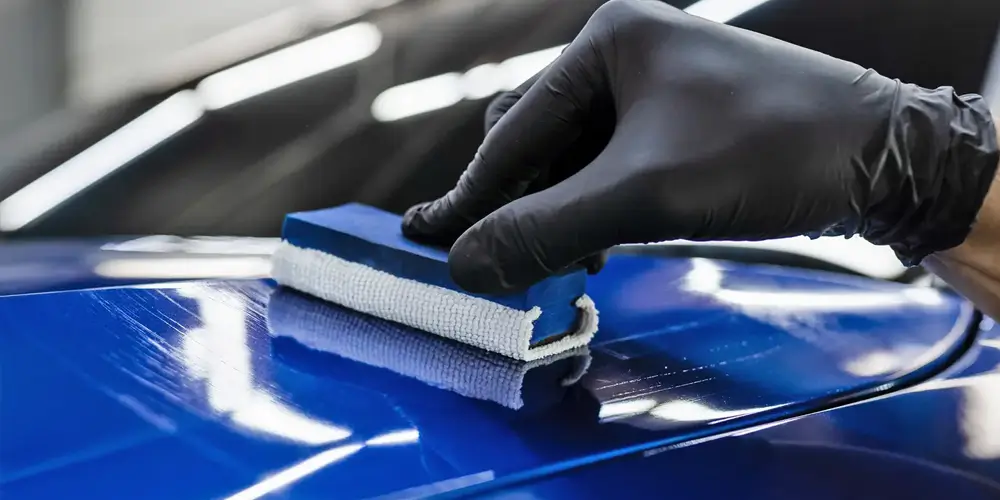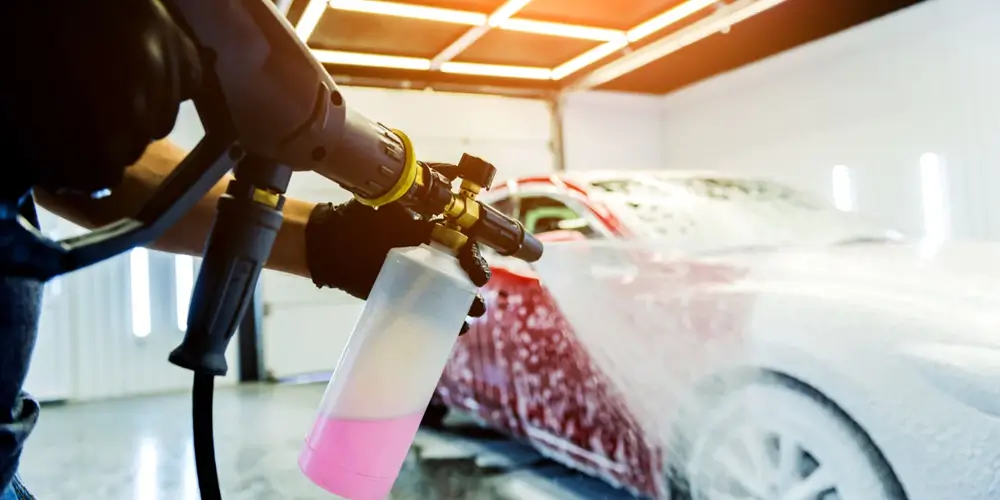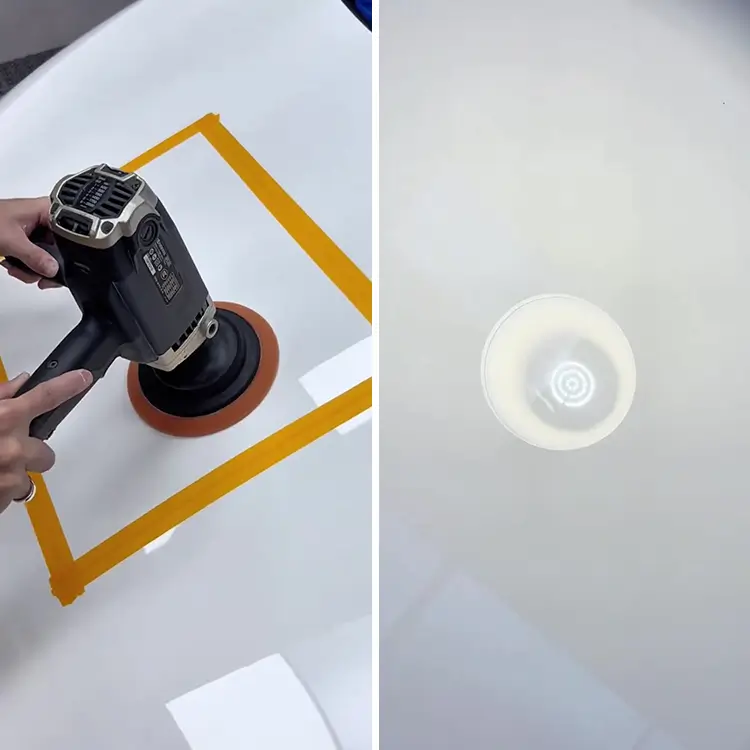What Should You Do Before Polishing a Car? A Comprehensive Guide by SYBON
Polishing a car is an essential part of maintaining its appearance and protecting its value. However, before you begin the polishing process, it’s crucial to take several preparatory steps to ensure the best results. At SYBON, we believe in delivering not only high-quality polishing and abrasive compounds but also educating our customers on how to achieve professional-grade results. Whether you are a car enthusiast, an automotive beauty shop owner, or a repair center professional, understanding the right preparation steps is key to a flawless finish.
1. Wash the Car Thoroughly
Before you can even think about polishing a vehicle, it’s essential to start with a clean surface. Dirt, dust, and other contaminants can create scratches during polishing, which is counterproductive. Here's a step-by-step guide on washing your car properly:
1. Use a High-Quality Car Shampoo: Regular household soaps can strip the car’s wax and dull the paint. Use a dedicated car shampoo designed to break down dirt and grime without harming the car’s protective layers.
2. Rinse the Car First: Start by rinsing the car with water to remove loose dirt and debris.
3. Two-Bucket Method: Use the two-bucket method, one for soapy water and the other for rinsing your wash mitt. This prevents dirt from getting re-applied to the car’s surface, reducing the risk of scratches.
4. Clean the Wheels Separately: The wheels often have brake dust and other contaminants that can be quite abrasive. Use a different wash mitt and cleaner for the wheels.
2. Inspect the Car for Paint Damage
After the car has been washed and dried, it’s time to inspect the paint. A careful inspection will help you determine the extent of polishing required and whether additional steps like paint correction are necessary.
1. Look for Scratches, Swirl Marks, and Oxidation: These imperfections are common and can usually be corrected with polishing.
2. Check for Rock Chips or Deep Scratches: These may require filling or more intensive paint correction methods before you proceed with polishing.
3. Use Proper Lighting: Good lighting is essential for seeing small imperfections. Sunlight or high-quality garage lighting works best.
3. Decontaminate the Paint
Even after washing, your car’s paint may still have bonded contaminants such as tar, bugs, or tree sap that can’t be removed with just soap and water. These contaminants need to be removed before polishing; otherwise, they can cause scratches.
1. Clay Bar Treatment: A clay bar is one of the most effective ways to remove embedded contaminants. Lubricate the surface with a clay bar lubricant and gently rub the clay over the paint. This will pull off any debris embedded in the paint, leaving a smooth surface.
2. Iron Remover: Iron particles from brake dust and rail dust can bond to your car's surface. An iron remover is a chemical solution that helps dissolve these particles, preventing damage to your paint when you start polishing.
4. Mask Off Sensitive Areas
Polishing compounds are abrasive, and if not careful, they can damage sensitive areas of your vehicle such as plastic trims, rubber seals, or emblems. Before you start polishing, take the time to mask off these areas.
1. Use Automotive Masking Tape: Apply tape to protect plastic and rubber trims, badges, and any other parts of the car that you don’t want to polish.
2. Avoid Windows and Lights: These surfaces can be damaged by the abrasive nature of polishing compounds, so cover them if needed.
5. Choose the Right Polishing Compound
Selecting the right polishing compound is crucial to achieving the results you want. Different compounds are designed for different levels of paint correction, and choosing the wrong one can lead to disappointing results.
1. Light Polishing Compound: If your car’s paint only has minor imperfections such as swirl marks or light oxidation, a light polishing compound is usually enough.
2. Medium to Heavy Polishing Compound: For cars with more significant imperfections like deep scratches, etching, or heavy oxidation, a medium to heavy polishing compound will be necessary.
3. Test a Small Area First: Before you polish the entire car, test a small, inconspicuous area to see how the compound works with your car’s paint.
At SYBON, we manufacture a wide range of high-quality polishing and abrasive compounds to meet different needs. Our products are designed for professional use and deliver exceptional results, whether you’re a DIY car enthusiast or running an automotive repair center.
6. Choose the Right Polishing Pad
In addition to choosing the correct compound, selecting the right polishing pad is equally important. Different pads provide different levels of cut and finish.
1. Foam Pads: Foam pads come in varying levels of aggressiveness, from soft pads for finishing to more aggressive ones for cutting. They are versatile and are commonly used for most polishing jobs.
2. Microfiber Pads: These pads are more aggressive than foam and are ideal for cutting through tougher imperfections.
3. Wool Pads: Wool pads are the most aggressive and are typically used for heavy cutting. They should be used carefully, as they can remove more paint than foam or microfiber pads.
7. Determine Whether to Use a Dual Action or Rotary Polisher
A key decision before you start polishing is whether to use a dual-action polisher or a rotary polisher.
1. Dual Action Polisher (DA): This is the most beginner-friendly option. It has a random orbit motion, which minimizes the risk of burning through the paint. It’s great for general polishing and removing light to moderate imperfections.
2. Rotary Polisher: A rotary polisher is more powerful and is often used by professionals for serious paint correction. However, it requires more experience to use properly, as it spins in a consistent motion, which can lead to overheating and paint damage if not handled carefully.
8. Set Up a Dust-Free Environment
Dust and other particles can quickly ruin a polishing job. Even a small amount of dust can cause scratches or imperfections during the polishing process.
1. Work Indoors if Possible: If you have access to a garage, this is the best place to polish a car since it limits exposure to dust and other contaminants.
2. Clean the Work Area: Make sure your workspace is clean and free of dust. Sweep the floor and wipe down surfaces to remove any potential contaminants.
3. Use a Dust Cover for Open Areas: If working outdoors, consider using a car cover or tent to shield the vehicle from dust and debris.
9. Wear the Right Gear
Polishing a car involves chemicals and fine particles that can be harmful if inhaled or if they come into contact with your skin or eyes. Ensure you’re wearing the proper safety gear before starting.
1. Safety Goggles: Protect your eyes from polish splatter and fine dust.
2. Respirator Mask: A mask will protect your lungs from inhaling fine particles and fumes from the compounds.
3. Gloves: Wear gloves to protect your skin from chemical exposure.
10. Test on a Small Section First
Before you commit to polishing the entire car, it’s a good idea to test your setup (polishing compound, pad, and machine) on a small, inconspicuous section of the car. This will help you assess the effectiveness of the combination and make any adjustments necessary before proceeding.
1. Check for Desired Results: After polishing the small section, check to see if you’ve achieved the desired level of correction and gloss.
2. Adjust Technique or Products if Necessary: If you’re not happy with the results, you may need to switch to a more aggressive compound or pad, or adjust your technique.
Conclusion: The Importance of Preparation in Car Polishing
Polishing your car can dramatically enhance its appearance, but the process requires proper preparation to achieve the best results. At SYBON, we are committed to providing not only high-quality polishing and abrasive compounds but also the knowledge and support to help you get the most out of our products.
If you're a car care professional such as an importer, automotive beauty shop owner, or auto repair center owner, we’d love to collaborate with you. Visit our website and fill out the contact form to reach out to us for partnership opportunities. Let’s work together to bring your customers the highest quality car care products and services!
Source of this article:https://www.sybonbest.com
Get to know us through more channels:




